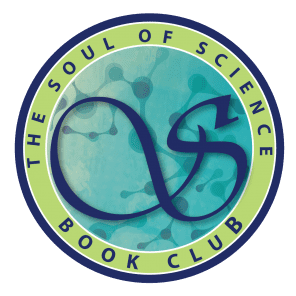“Inquiring minds want to know!” Does anyone else remember that advertising tag line? It was the slogan for one of the lurid tabloid gossip magazines that plastered the checkout lines of my childhood. When I was very young, just learning to read really, I would try to decipher what exactly it was that all the “inquiring minds” found answered in those headlines. I was curious, and worked all the angles to find out (much to my mother’s dismay). Aren’t children just naturally curious?!
I was curious about so much in those days. I wondered why the sun seemed to follow the family car when we rode down the highway. I wondered why the leaves on the huge sweet gum tree outside our apartment always appeared to turn backwards just before a big storm. I wondered why my feet got sucked down into the sand when the waves washed out to sea as I stood at the water’s edge. I wondered “what would happen if…” a lot; most likely I drove my mom crazy with all of my wonderings. I remember her taking me to the library to find a book that might answer my questions, and I remember her suggesting “ask your Daddy when he comes home.” I remember my dad (eventually, with some degree of weariness) advising, “Ask your teacher! That’s why you go to school!”
I also remember deciding when my girls were born that I would help them chase the answers to all of their wonderings, right at home! I vowed to explore, and experiment, and engage in those pursuits with them. I remembered curiosity as an incredibly powerful motivator. As homeschooling became our way of life, I renewed my vow over and over, and many times actually kept it. My goal was to keep their minds “inquiring”!
When my girls were young, it was easier to chase the rabbits of their interests; we could take an afternoon to explore ant behavior when we discovered a huge mound in the yard in the morning. We could learn about buoyancy by playing with found objects in the kitchen sink. We could check out all the books on lizards at the Rockingham County Library if we wanted to determine if the creature on our wood pile was a lizard or a skink. I became the master question answerer in the minds of my girls, and the co-explorer of their small worlds. It was glorious! But as they grew up, I lost my way a bit.
I found myself turning more often to a textbook, and encouraging them to read/make notes/do exercises/take a quiz. I wanted them to have a good grounding in biology, chemistry, and physics. I wanted them to know the scientific method and the periodic table. We worked hard to complete assignments, and ready ourselves for discussion during Challenge seminar days. I almost forgot about chasing their curiosity, and the joy of finding my wonder mirrored in their eyes. I am sad to say that my girls do not love science now as they did then. Science as a “subject” was much different than science as a pursuit of wonder! If I could go back, I surely would.
But, maybe you can! I think we all want to reclaim the wonder and awe of science for our families; we want to learn, and explore, and experiment as a way to understand our universe, our Savior, and our responsibilities for this world. We want to be scientists with our children, not “do science” with them! So, we prepare ourselves to be different.
Why do we work so hard to educate our children differently than we were educated? Why do we read challenging books, and struggle with deep thoughts, and try to make sense of new vocabularies? The short answer is that we want more for our children than we had at their ages; we want to give them a head start at understanding how the world is connected, how history fits together, and how one area of knowledge is an extension of another strand of knowledge. Most of us eagerly embrace learning more about history and literature with our children; it seems fairly easy. In many ways we do not feel so much like we have to unlearn things in these disciplines; it is more like getting “the rest of the story” than deciphering a new story. But in the realms of science and math, we frequently find that what was left out of the story actually changed the story quite materially. So, in essence, we go back to school with our students!
As we find the wonder and awe and connectedness, we pass the delight on to our children. As we indulge our curiosity together, we will strengthen both our understanding of science and our relationship with our children.




